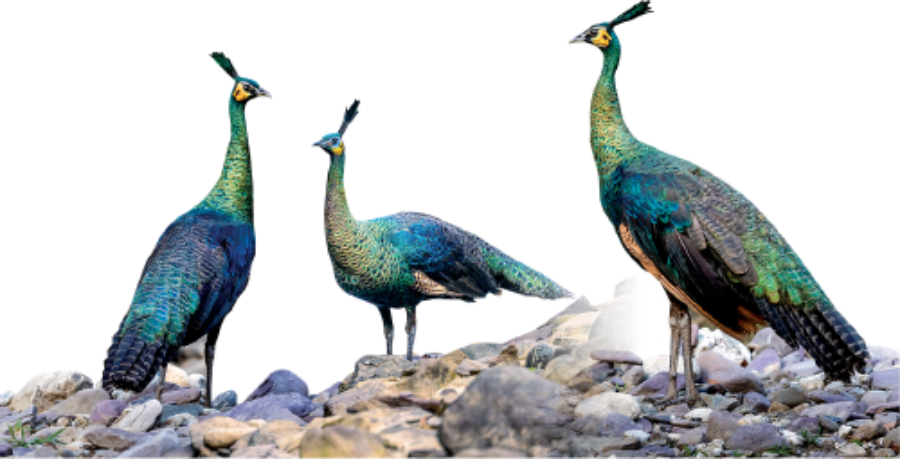'Mysterious' mountains start to reveal their natural wonders
Online curiosity piques interest in subtropical region with rare animals, forest perils


Observing rare gibbon
The critically endangered western black-crested gibbon, with a small, fragmented population of about 1,300 individuals, is mainly found in Yunnan, spanning the borders of China, Vietnam and Laos.
Due to its rarity, secluded mountain habitats, and extremely secretive behavior, this national first-class protected animal has always been shrouded in mystery.
With their long arms, almost twice as long as their body (about 50 cm), the gibbons can swing from branch to branch and travel long distances through the forest canopy.
These small apes eat fruits that are high in sugar (like figs), flowers, and younger and softer leaves. When these staples are not available they eat insects and small mammals.
The Wuliang and Ailao Mountains are the main distribution areas and important protection zones for the western black-crested gibbons.
In September, the Xinping section of the Ailao Mountain National Nature Reserve and the Kunming Institute of Zoology jointly established an observation point.
"The Ailao Mountains area is one of the regions with rich biodiversity in central Yunnan, home to important species such as the western black-crested gibbon and the Indochinese gray langur," said Jiang Xuelong, a researcher at the institute.
"Our recent survey of the gibbons highlights the significance of the area. It was quite necessary to set up an observation point here," he said.
Jiang said they hope to better understand the wildlife diversity in the Xinping section of the Ailao Mountains and provide scientific support and data for biodiversity conservation in central Yunnan.
Guo Bin, director of the Xinping administrative bureau of the Ailao Mountain National Nature Reserve, pointed out that collaborating with the Chinese Academy of Sciences will help provide scientific data for future conservation efforts.
"It will also lay the foundation for future national park applications," he said.
Contact the writers at zhangxiaomin@chinadaily.com.cn























